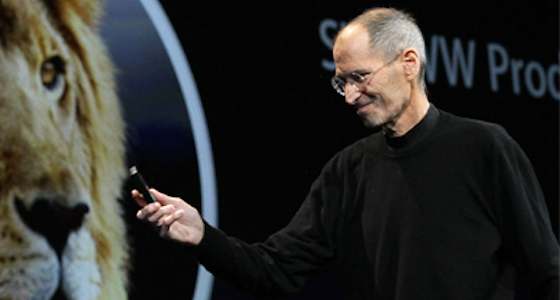- MENU
- HOME
- SEARCH
- WORLD
- MAIN
- AFRICA
- ASIA
- BALKANS
- EUROPE
- LATIN AMERICA
- MIDDLE EAST
- United Kingdom
- United States
- Argentina
- Australia
- Austria
- Benelux
- Brazil
- Canada
- China
- France
- Germany
- Greece
- Hungary
- India
- Indonesia
- Ireland
- Israel
- Italy
- Japan
- Korea
- Mexico
- New Zealand
- Pakistan
- Philippines
- Poland
- Russia
- South Africa
- Spain
- Taiwan
- Turkey
- USA
- BUSINESS
- WEALTH
- STOCKS
- TECH
- HEALTH
- LIFESTYLE
- ENTERTAINMENT
- SPORTS
- RSS
- iHaveNet.com
By Andres Oppenheimer

A Tweet I received from a Spanish follower hours after the death of Apple founder
The comment raises the interesting questions of why there aren't more innovators such as Jobs -- or
Jobs, who died at age 56 after a long fight with pancreatic cancer, went to a good high school in a high-tech
In 1985, Jobs left the company amid a power struggle within the company, and started a period that he later described as one of the most creative in his life. He founded NeXT Computer with little money, but soon got billionaire
Shortly after starting NeXT, Jobs bought Pixar, then a little-known computer graphics company, and started producing movies such as Toy Story and other computer-animated movies. He returned to Apple in 1996, and what followed is history. Throughout his life, he registered 338 U.S. patents.
Judging from international statistics, my Twitter correspondent may be right in that Jobs would have had to be very patient -- and lucky -- to start his computer company in
According to the
When it comes to how easy it is to get credit to start a business,
Regarding intellectual protection for patents -- or keeping others from stealing your invention --
Not measured in the
In many other countries, Jobs' career may have ended after being pushed out of Apple. Both his professional peers and potential investors would have seen him as a has-been, but in the
My opinion: Jobs was a great innovator, but I don't agree with the countless articles that appeared after his death describing him as a unique genius. I'm sure that there are potential
In several European and most Latin American countries, Jobs would have joined the armies of frustrated entrepreneurs unable to materialize their inventions, or would have been one more of the millions of business people working in the underground economy, without ever mass-producing anything.
And in today's America, I wonder whether Jobs would have gotten the financing needed to start his first ventures.
So as we remember Jobs, let's not dwell only on the fact that he was outstanding. Let's also keep in mind that part of his success was due to the
Steve Jobs May Have Failed Abroad